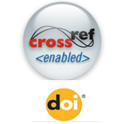|

|
TRANSFORMATION IN POLITICAL COMMUNICATION: FROM TRADITIONAL COMMUNICATION TO ARTIFICIAL INTELLIGENCE
(.
)
|
Author
|
:
H.Nur GÖRKEMLİ
CAN KADEROĞLU, HAYRİYE NUR GÖRKEMLİ
|
|
|
Type |
:
|
|
Printing Year |
:
|
|
Number |
:
|
|
Page |
:
|
| Cite : |
H.Nur GÖRKEMLİ CAN KADEROĞLU, HAYRİYE NUR GÖRKEMLİ, (). TRANSFORMATION IN POLITICAL COMMUNICATION: FROM TRADITIONAL COMMUNICATION TO ARTIFICIAL INTELLIGENCE . Digital communication Journal, , p. . Doi: .
|
|
|
Summary
Political communication, used to gain or maintain political power, is a multidimensional and dynamic process that involves many disciplines. This process takes place not only between the party, candidates and voters, but also with any individual or group that can influence the electoral process. When it comes to political communication, it begins not only during the election period, but also with the establishment of a political party and the laying of the foundations of the party's ideology. It requires the cooperation and interaction of a wide range of professionals, including academics, journalists, advertisers and public relations experts. Historically, political communication activities began with face-to-face communication. Today, with the development of media and communication technologies, it is also carried out through mass media. Although traditional communication channels are still used effectively, new media stand out in political communication because of their pervasiveness and interactive features. In particular, the development of Internet technologies has made it possible to have two-way interaction with large masses in political communication, especially in digital environments such as social media, without any problems of time, space and control. Later, artificial intelligence rapidly entered our lives, enabling various critical practices, from predicting election results to developing strategies and campaigns for different constituencies. This study, which is based on literature, explains how political communication has gone through a journey from face-to-face communication to the use of artificial intelligence over time, starting from the definition of political communication and also including political communication theories. The study discusses the threats and opportunities of the transformation of political communication. In addition, suggestions on what kind of precautions can be taken against these threats are also included.
Keywords
political communication, digital political communication, social media, artificial intelligence
Abstract
.
Keywords
.
|
|
